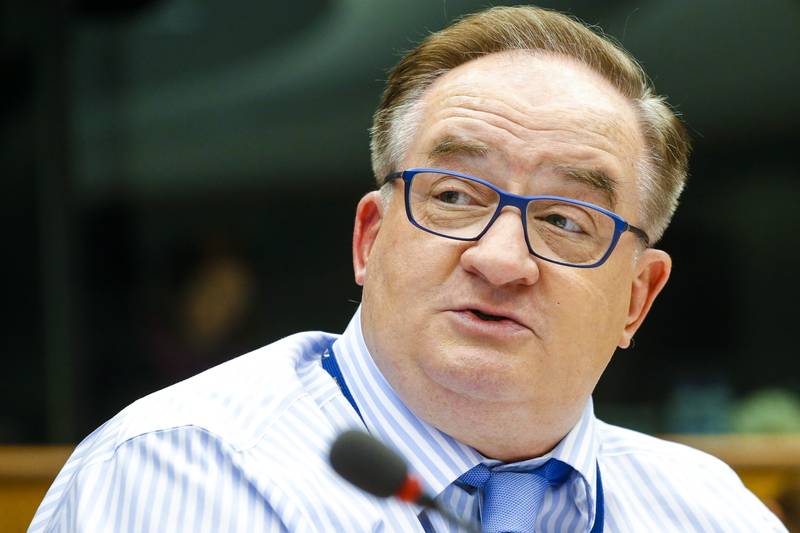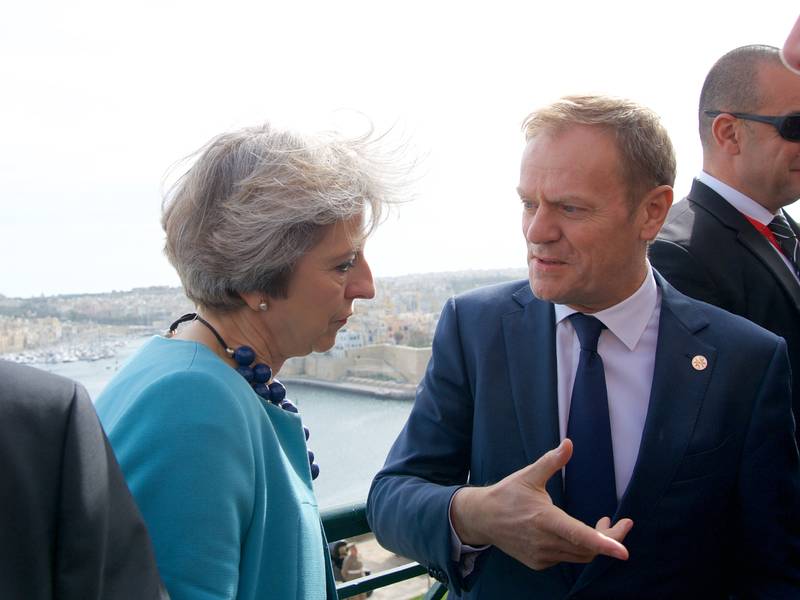Poland's Weird March Against Its Own Self
Adelina Marini, March 7, 2017
 Poland opened a new front of confrontation with the EU, but it seems that it will lose. This week the leaders of the member states are about to elect the former Polish prime minister Donald Tusk (EPP) to his second term at the head of the European Council, but the government of the ultra-conservative Law and Justice party refused to support him and came up with another applicant. Jaroslaw Kaczynski's party has long had a problem with Donald Tusk, whom it accuses of betrayal because of the investigation of the crash in Smolensk, which killed the then president and brother of Jaroslaw Kaczynski - Lech Kaczynski. Since Law and Justice came to power in Poland in late 2015 it became clear that Mr Tusk could not count on support from Warsaw for his re-election.
Poland opened a new front of confrontation with the EU, but it seems that it will lose. This week the leaders of the member states are about to elect the former Polish prime minister Donald Tusk (EPP) to his second term at the head of the European Council, but the government of the ultra-conservative Law and Justice party refused to support him and came up with another applicant. Jaroslaw Kaczynski's party has long had a problem with Donald Tusk, whom it accuses of betrayal because of the investigation of the crash in Smolensk, which killed the then president and brother of Jaroslaw Kaczynski - Lech Kaczynski. Since Law and Justice came to power in Poland in late 2015 it became clear that Mr Tusk could not count on support from Warsaw for his re-election.
Tusk was elected without much speculation in 2014 for several reasons. First of all, it was time that one of the new member states assumed a key European post. At that time, Poland seemed the best candidate because its recent prime minister Donald Tusk managed within two mandates to transform Poland into an unavoidable force in the EU. Furthermore, the new Cold War with Russia had already begun after the occupation of Ukraine and Poland, together with the Baltic states, managed to show that the topic is extremely important for European security. Last but not least, the party of Donald Tusk - Civic Platform - is part of the family of the European People's Party (EPP), which won the European elections in 2014.
It was the first time a little more transparency and democracy were brought to the election of heads of institutions with the election of Jean-Claude Juncker (Luxembourg, EPP) as president of the EC, but for other posts the principle of horse-trading among member states on a geopolitical and party principle remained. The president of the European Council's mandate is of two and a half years to allow for maximum satisfaction of the ever increasing number of interests in the ever growing Union. Currently, however, the mood is not to open new battlefields but maintain stability. With all his shortcomings, Donald Tusk proved to be a good president of the European Council and therefore has the support of most of the member states for a new term.
In practise, there was no other application presented until Saturday when Polish Foreign Minister Witold Waszczykowski nominated EPP MEP Jacek Saryusz-Wolski. The decision is rather strange considering that Poland's ruling Law and Justice party is a member of the third largest political force in the EU - European Conservatives and Reformists, dominated by the British Conservatives. There are several problems with the nomination of otherwise popular Polish MEP. The first is that nothing less than a former prime minister is sought for that position. Jacek Saryusz-Wolski has in his biography only the position of a MEP, to which he was elected through Donald Tusk's party - Civic Platform. In the European Parliament he had risen to the position of a vice-president, the position he also occupied in the EPP. He is one of the notable members of the Committee on Foreign Affairs of the EP.
The second problem is that the EPP has already announced that its candidate is Donald Tusk. Therefore Civic Platform officially informed the EPP that Jacek Saryusz-Wolski was expelled from the party. On this basis, the EPP also released the MEP from his positions, and meanwhile he himself left the centre-right European political family.
Poland has another problem - it should not think that the office is reserved for it, the more so that Warsaw has fallen out of grace because of the procedure for the protection of the rule of law that is ongoing against it. The European Commission initiated the procedure early last year because of the attempts of Beata Szydło's government and the ruling majority to undermine the rule of law, separation of powers, and legal order in general by hasty legislative changes aimed at curtailing the powers of the Constitutional Court and the media. The procedure is now entering its final phase when the European Commission should propose to the Council to impose sanctions. This will probably not pass because of the support of Hungary, but it is clear that the Polish government is pushing the country further into isolation within the EU.
All this is developing at a time when two very important events must happen in the EU. One is to begin negotiations with Great Britain over its exit from the EU and hence Prime Minister Theresa May would find it advantageous if the head of the European Council was a friendly figure, given the fact that Law and Justice is part of the family British Conservatives in the EU. The other big event is that discussions begin on the future of the EU after European Commission President Jean-Claude Juncker presented a White Paper with proposals for the future. Electing a eurosceptic head of the European Council would be a bad  message. Donald Tusk is not known as a great europhile, but can hardly be called an eurosceptic. He is rather a eurorealist, which makes him very suitable for the post at this moment in history.
message. Donald Tusk is not known as a great europhile, but can hardly be called an eurosceptic. He is rather a eurorealist, which makes him very suitable for the post at this moment in history.
The re-election of Donald Tusk does not need unanimity, which means that his victory is almost certain. Regardless of how events will unfold by the end of the week, when Tusk will possibly be confirmed, it is clear that this is not the end of the conflict between Warsaw and Brussels. And the fact that it involves the EPP as well means that the moment has finally come for European political parties to take responsibility for their members and their activities at national and European level. Jacek Saryusz-Wolski's expulsion could be the bird to bring spring into European political parties, which have long held smoldering tension due to a mismatch in the system of values, views, and the direction of the entire European project.
Translated by Stanimir Stoev
 Federica Mogherini | © Council of the EU
Federica Mogherini | © Council of the EU | © Council of the EU
| © Council of the EU Luis De Guindos | © Council of the EU
Luis De Guindos | © Council of the EU